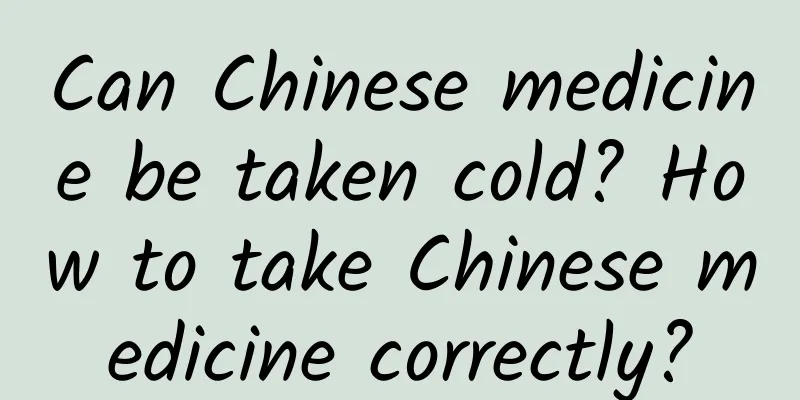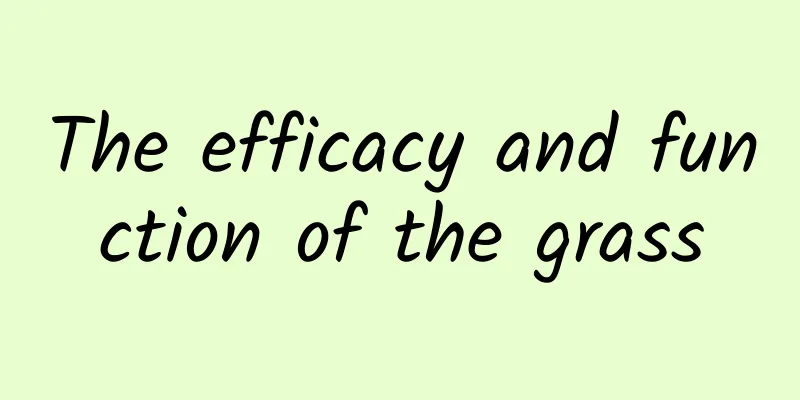Can Chinese medicine be taken cold? How to take Chinese medicine correctly?

|
Traditional Chinese medicine has a very good effect in treating many diseases. The common medicinal material Panax notoginseng has the effect of reducing swelling and relieving pain. It can be used to treat symptoms such as bloody stools, vomiting blood and chest pain. Of course, different medicinal materials have different effects, and when decocting Chinese medicine, everyone should also pay attention to using the correct way to drink it. So, can Chinese medicine be taken cold? Can Chinese medicine be taken cold? Traditional Chinese medicine theory is very particular about the temperature of oral decoctions. There are more than ten ways of taking the medicine, and there are three specific temperatures for the medicine: warm, hot, and cold. Generally, Chinese herbal decoctions should be taken “warm”, that is, the decoction should be filtered out immediately after being boiled. Allow to cool to 30℃~37℃ at room temperature before drinking; Chinese patent medicines in the form of pills and powders should be taken with warm water. This is also a kind of warm medicine. Traditional Chinese medicine that dispels wind and cold should be taken hot, and you can eat some hot porridge or hot water after taking it to help the medicine work. However, detoxifying and heat-clearing medicines, especially traditional Chinese medicines for relieving summer heat, are more effective when taken cold. In the south, people often take some "cold tea" in summer, which is actually a kind of Chinese medicine. As the name suggests, many herbal teas are best drunk after they have cooled down, as they are more effective in cooling down and relieving heat. Regarding taking Chinese medicine, generally speaking, medicine for treating fever can be taken cold, while medicine for treating cold should be taken hot. Patients can control the temperature of taking medicine according to their own situation. Patients with "yang disease" often show symptoms of heat, including fever all over the body, thirst, dry stool, short and yellow urine, mouth and tongue ulcers, red tongue, yellow tongue coating, and rapid pulse; while "yin disease" often shows symptoms of cold, including chills and fever, no sweating, cold and painful abdomen, cold limbs and lethargy, diarrhea, edema, pale tongue, and thin white coating. There is a little trick in traditional Chinese medicine prescriptions. Generally speaking, most of those called "soup" are taken hot, while most of those called "drink" need to be taken cold. Because in ancient Chinese, the words "soup" and "drink" have different temperatures. However, to be cautious, it is best for patients to ask the Chinese medicine practitioner about the relevant instructions for taking the medicine after the prescription is given to prevent deviations. In fact, some Chinese medicines need to be cooled before drinking. The correct way to drink Chinese medicine Drug dosage Drug dosage is the key to drug efficacy. Many people believe that Chinese medicine has a slow effect and increasing the dosage will produce faster results. In fact, the effects of medicines vary depending on the dosage. For example, some people often chew ginseng, or use it to stew meat or make soup to achieve health-care effects. However, they do not know that eating too much ginseng can cause toxic reactions such as headaches, insomnia, palpitations, irritability, constipation, and increased blood pressure. footnote Some patients who regularly take Chinese medicine do not pay attention to the footnotes on the Chinese medicine prescriptions (decoction first, add later, crush, decoct separately, melt, take with water, decoct in a bag, etc.), which not only affects the efficacy but also wastes the medicine. Decoction The containers for decocting medicine can be ceramic pots, stainless steel pots, etc., but iron utensils cannot be used. The general decocting time is 30 minutes, but for some medicines, it depends on the specific situation. For example, antipyretic drugs only need to be decocted for 10 minutes after boiling; tonic drugs can be decocted on low heat for 40 minutes after boiling; minerals, shells, and poisonous traditional Chinese medicines need to be decocted for a longer time. Taking medication The decocted medicine should be taken one hour before meals; medicines that are irritating to the gastrointestinal tract should be taken after meals; tonic medicines should be taken on an empty stomach; sedatives should be taken before bedtime; chronic diseases should be taken at regular intervals. Dosage: Generally each dose is taken in 2 to 3 times, 1 dose per day; in special circumstances, 2 doses can be taken in 1 day to enhance the efficacy. Precautions for taking Chinese medicine 1. It is best to take Chinese medicine 30-60 minutes after a meal to avoid the irritation of the gastric mucosa by the Chinese medicine ingredients. 2. It is best not to drink tea, coffee, milk or soy milk about one hour before and after taking Chinese medicine, so as to avoid chemical reactions between the Chinese medicine ingredients and the tannins, caffeine and proteins in the tea, which may affect the efficacy. You can drink water. 3. If you feel uncomfortable or have diarrhea after taking Chinese medicine, please contact your doctor in time. Please stop taking the medicine if you have a cold or cough. |
<<: The correct way to eat Panax notoginseng powder is on an empty stomach. There are two kinds of
>>: There are 15 kinds of Chinese medicine for kidney tonification
Recommend
The efficacy and usage of wild seven-leaf Gynostemma pentaphyllum tea
Gynostemma pentaphyllum is a common Chinese herba...
The efficacy and function of Eucommia tea and how to consume it
In fact, there are various kinds of tea in our li...
Does Gastrodia elata irritate the stomach?
Gastrodia elata is a natural herb that can effect...
What do scientists do at night when they are not publishing papers?
This article is a review article published in Gen...
The efficacy and function of Moringa
When it comes to moringa seeds, many people don&#...
Fire breaks out in high-rise buildings! These safety tips can save lives →
December 11 Notice from Shenzhen Fire Rescue Deta...
Let’s talk about it from a mathematical perspective: why do people who are addicted to gambling always end up going bankrupt?
In the recent hit drama "Crazy", there ...
The efficacy and function of Tiegu San
The Chinese medicine Tiekusan is already very fam...
Tonight, the Geminid meteor shower fills the sky. Where can I watch it? Can I take photos?
Tonight is the day of the annual Geminid meteor s...
The medicinal value of five major mulberry root barks
Mulberry root bark is a material obtained from mu...
5G is beautiful, but we also need to solve the problem: Why must we pay attention to 5G-Advanced today?
I wonder if you have noticed that in 2019, the fi...
Chen Hesheng | China Spallation Neutron Source
About half of the Nobel Prizes in Physics and Che...
Physical examination tips: What is considered fasting? How long should you be “fasting”?
Author: Chu Xi, Chief Physician, Xuanwu Hospital,...
If you understand China’s economic history, you will know how the ancients lived!
This article was first published by Hunzhi (WeCha...
The efficacy and function of cattail
Many people are not very clear about the effects ...









